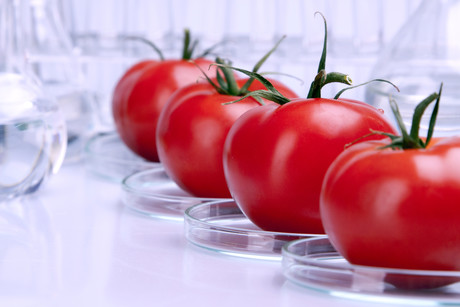Edible packaging and algae-based protein could be our food future

New technology and innovations have been explored by the CSIRO in its recently released Food & Agribusiness Roadmap.
A successful future for the food sector could see the development of allergenic-free nuts, tolerable varieties of lactose and gluten, edible packaging and the consumption of algae-based proteins.
“Australian businesses are among the most innovative in the world and, together with our world-class scientists, can deliver growth in the food and agribusiness sector amid unprecedented global change,” said Deputy Director of CSIRO Agriculture and Food Dr Martin Cole.
“Less predictable growing conditions, increasingly global value chains and customers who demand healthier, more convenient and traceable foods are driving businesses to new ways of operating.
“Advances are already being made through the use of blockchain technology and the development of labels that change colour with temperature or time, or are programmed to release preservatives.”
The CSIRO’s roadmap was developed in collaboration with the government-funded food and agribusiness growth centre, Food Innovation Australia Limited (FIAL). It outlines value-adding opportunities for Australian products in key growth areas, including health and wellbeing, premium convenience foods and sustainability-driven products that reduce waste or use fewer resources.
Five key enablers for these opportunities are explored in the roadmap: traceability and provenance, food safety and biosecurity, market intelligence and access, collaboration and knowledge sharing, and skills.
These enablers align with FIAL’s knowledge priority areas that are central in helping the food and agribusiness industry achieve its vision and deliver increased productivity, sustainable economic growth, job creation and investment attraction for the sector.
FIAL recently launched its sector competitiveness plan, which outlines the overarching industry vision to grow the share of Australian food in the global marketplace and the necessary strategy to achieve the vision. Australia exports over $40 billion worth of food and beverages each year, with 63% headed for Asia.
“With the growing Asian middle class, Australia is in the box seat to take advantage of the many emerging export opportunities,” said FIAL Chairman Peter Schutz.
“Consumers are looking for differentiated products that cater to their needs.
“This is especially exciting for Australian food and agribusinesses, which have the capability to respond with customised and niche products.”
The roadmap calls for improved collaboration and knowledge sharing to generate scale, efficiency and agility across rapidly changing value chains and markets.
“To survive and grow, the challenge facing Australia’s 177,000 businesses in the food and agribusiness sector is to identify new products, services and business models that arise from the emerging needs of tomorrow’s global customers,” Cole said.
Download the report here.
Genetically modified purple tomato approved in Australia
The genetically modified Purple Bliss tomatoes have now received regulatory approvals in...
Santa creates a spike in Australia's milk demand
Australian households are gearing up for the country's biggest night of dairy consumption,...
Not all processed fats are bad, study finds
A UK study into two types of industrially processed hard fats, which are widely used in the food...










